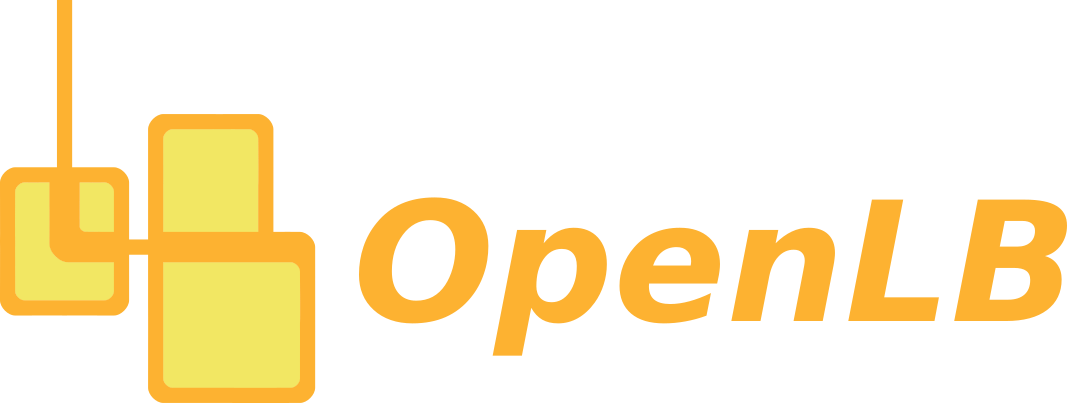Lattice Boltzmann Methods
with OpenLB Software Lab
06.-10. March 2017
Hammamet, Tunisia
Executive committee
- Mahdi Tekitek, Université de Tunis El Manar, Tunisia
- Ezeddine Sediki, Université de Tunis El Manar, Tunisia
- Mathias J. Krause, Karlsruhe Institute of Technology, Germany
- Albert Mink, Karlsruhe Institute of Technology, Germany
The field of Lattice Boltzmann Method
In recent years, Lattice Boltzmann Methods (LBM) turned into an established numerical tool for computational fluid dynamic (CFD) problems and beyond. The simulation of complex multi-physical problems benefits strongly from the comprehensive mesoscopic modelling underlying LBM and establishes LBM besides traditional numerical methods.
Target audience
The expected attendees are Master and PhD students as well as researchers and developers from academia and industry, who seek to learn both, theoretical and practical aspects of LBM. As simulation is an interdisciplinary discipline, the spring school addresses to engineers, computer scientists, mathematicians, physicians and others. Based on their interest in CFD, this course provides a collaborative platform for LBM for developers and researchers.
Objective of the spring school
The spring school introduces scientists and applicants from industry to the theory of LBM and trains them on practical problems. The first three days are dedicated to the theoretical fundamentals of LBM up to ongoing research on selected topics. Followed by two days of mentored training on case studies using OpenLB, the participants gain deep inside into LBM and its applications.
This educational concept is probably unique in the LBM community and offers a comprehensive and personal guided approach to LBM. Participants also benefit from the knowledge exchange during poster session, coffee breaks and the excursion at the Mediterranean sea.
Lab room and requirements
In the computing lab sessions on Thursday and Friday, the participants are trained on practical applications, deploying the open source software OpenLB. Particular focus is placed on case studies, which are important to understand and verify the theory presented in the lectures, earlier in the spring school. By the help of experienced tutors, the computing lab sessions also enable to set up OpenLB simulations for relevant problems. To guaranty personal tutoring and intensive exchange between experienced mentors and novices, the lab is limited to 30 participants.
The attendees are responsible to bring their own laptop equipped with the software
- GNU c++ compiler 4.8 and higher
- OpenMPI 1.6 and higher
- Paraview
Speakers (preliminary)
- François Dubois, CNAM Paris, Université Paris-Sud, France (confirmed)
- Mathias J. Krause, Karlsruhe Institute of Technology, Germany (confirmed)
- Timm Krüger, The University of Edinburgh, United Kingdom (confirmed)
- Marie-Luise Maier, Karlsruhe Institute of Technology, Germany (confirmed)
- Albert Mink, Karlsruhe Institute of Technology, Germany (confirmed)
- Patrick Nathen, Lilium GmbH, Germany (confirmed)
- Timothy Reis, Plymouth University, United Kingdom (confirmed)
- Ezeddine Sediki, Université de Tunis El Manar, Tunisia (confirmed)
- Mahid Tekitek, Université de Tunis El Manar, Tunisia (confirmed)
- Robin Trunk, Karlsruhe Institute of Technology, Germany (confirmed)
- Thomas Zeiser, Universität Erlangen-Nürnberg, Germany
Program (preliminary)
| Time | Monday | Tuesday | Wednesday |
| 09:00 | Opening by Tunisian Physical Society
Mathias J. Krause LBM for Application |
Ezeddine Sediki and Albert Mink
Collision Operator and Radiative Transport LBM |
Timm Krueger
Medical Application |
| 10:30 | Coffee | ||
| 11:00 | Short Introduction by Participants | Patrick Nathen
LBM Turbulence Models |
Markus Morhard
Efficient Parallel Implementation |
| 12:30 | Lunch | ||
| 14:30 | François Dubois
Chapman-Enskog and Target Equation |
Mahid Tekitek and Mathias J. Krause
Optimal Control |
Social Excursion` |
| 16:00 | Coffee | ||
| 16:30 | Timothy Reis
Boundary Conditions |
Thomas Henn, Marie-Luise Maier and Robin Trunk
LBM and Particles |
|
| 18:00 | Poster Session | ||
| 19:00 | Dinner | Conference Dinner | |
| Time | Thurdsday | Friday |
| 09:00 | Introduction to OpenLB
OpenLB step by step, Part I |
Exercise 2: Chanel flow around cylinder |
| 10:30 | Coffee | |
| 11:00 | OpenLB step by step, Part II | Exercise 3: Multiphase flows
Spring School Closing Ceremony |
| 12:30 | Lunch | |
| 14:30 | OpenLB step by step, Part III | |
| 16:00 | Coffee | |
| 16:30 | Exercise 0: Preliminars
Exercise 1: Lid driven cavity |
|
| 19:00 | Dinner | |
Course delivery
Package 1 (lecture) includes
Registration, full board hotel accommodation (5th-8th March), social excursion, lectures, printed lecture notes, certificate of participation, poster session and airport-hotel transfers. Fee: 300€, Accompanying Person Fee: 250€
Package 2 (lecture+computing lab) includes
Package 1 and additional full board hotel accommodation (8th-10th March), coffee breaks, computing lab and software examples. Limited to 30 participants, Fee: 400€, Accompanying Person Fee: 300€
Accommodation
The school will take place at the Hotel Alhambra Thalasso 5* at Hammamet which is 60 km from the capital Tunis in Tunisia.
Website: https://www.facebook.com/hotelalhambrathalasso/
Important dates
Registration (first come first serve) closing deadline by 23.12.2016, extended to 31.01.2017
Grants
Limited financial support is available to cover travel costs partially and conference fees for students. Send a letter of motivation (1 page) by the 23.12.2016 to springschool2017@openlb.net , closed
Poster session award
The award is aiming at supporting excellent students working in the field of LBM.
Supported by









